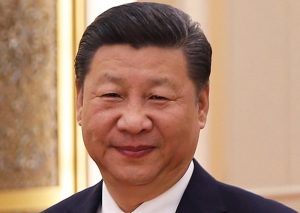China's recent enactment of a new law has raised concerns and sparked debates about the extent of President Xi Jinping's power and China's growing influence on the global stage. The law, which threatens to punish entities deemed "detrimental" to China's interests, has left many wondering about the limits and consequences that await those who cross them.
Experts suggest that this legislation reflects China's assertive foreign policy and its desire to push back against the United States. Jacques deLisle, a law and political science professor at the University of Pennsylvania, believes that while much of the law may consist of empty rhetoric, it serves as a signal of China's intention to actively pursue its interests through coercion and pressure.
The state media has hailed the law as a crucial step in fending off Western hegemony and enhancing China's legal arsenal. Dr. Chong Ja-Ian, a non-resident scholar at Carnegie China, sees it as a clear indication of Beijing's willingness to pursue its goals with more force, even as it continues to offer cooperation and economic gains.
However, there are concerns about the enforcement and implications of this law. Its vague wording leaves room for interpretation, and it remains unclear how it will be implemented starting July 1st. The potential consequences for foreign entities, particularly those with business interests in China, are yet to be fully understood.
China's strained relations with the United States, marked by trade sanctions and restrictions, have further escalated tensions. Recent raids and closures of US consultancy firms' offices in China, coupled with the banning of Micron products, are seen as retaliatory measures. Dr. Chong suggests that the new law may enhance China's ability to raid and investigate foreign firms, actions that have already taken place.
The law's defining feature is its ideology-based approach to China's foreign relations. It explicitly states that foreign relations are conducted to uphold the socialist system with Chinese characteristics, safeguard sovereignty, promote economic and social development, and adhere to the guidance of leaders such as Xi Jinping, Mao Zedong, Deng Xiaoping, and Marxist-Leninism. This emphasizes the Communist Party's authority over foreign policy, underscoring Xi's increasing power.
While some experts argue that the law may lead to increased conformity with China's goals worldwide, others warn that it could provoke other nations. The true impact of the law will depend on how courts interpret it and the severity of punitive measures.
In light of these developments, foreign companies operating in China may need to reassess their market exposure and political positions. The law provides a stronger legal basis for raids and investigations, indicating that China's actions may continue to be influenced by its evolving economic and national security concerns.
Notably, prominent figures like Elon Musk and Jamie Dimon have recently visited China to emphasize the importance of China to the US economy. Their actions reflect the delicate balance China faces between economic development and national security.
As China's new law comes into effect, its far-reaching implications are still uncertain. It remains to be seen how China will enforce the law and how it will shape the dynamics of global relations.






















